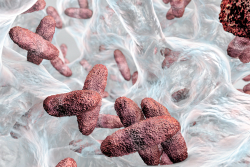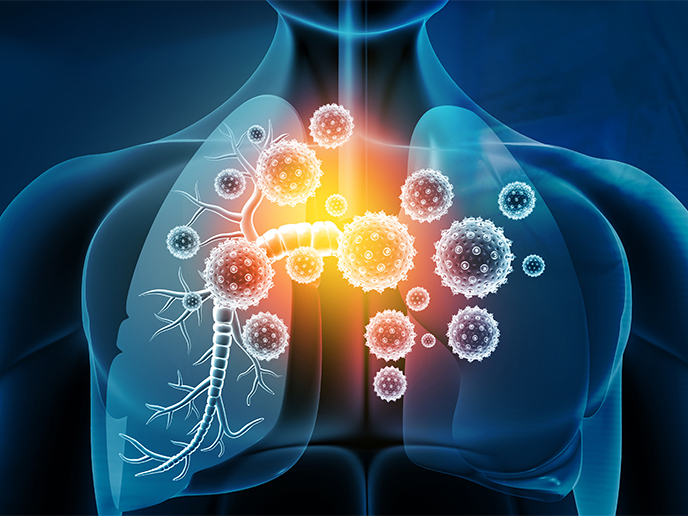A lesson on pathogen manipulation of host immunity
According to the World Health Organization, Klebsiella pneumoniae is considered a health-threatening microbe and antibiotic-resistant strains pose a serious clinical problem in many hospitals worldwide. The lack of antimicrobials and antiviral therapies combined with the very few new drugs that have entered the market in the past years emphasise the need for novel targets and compounds. Delineating the mechanisms employed by human pathogens to evade host immunity will set the grounds for the development of innovative therapies that enhance innate resistance to infection. The EU-funded INBIONET(opens in new window) (Infection biology training network: shaping the future of infectious diseases treatments) project embarked on the analysis of bacteria, viruses and enteric parasites to identify cellular pathways important for infection as well as pathogen determinants involved in disease progression. Their work focused mainly on Klebsiella pneumoniae, Helicobacter pylori, Streptococcus species, and vaccinia and influenza viruses. A new strategy for the identification of drug targets ‘Interference with pathogen virulence and signalling pathways hijacked by pathogens for their own benefit is thought to apply less selective pressure for the development of resistance than traditional strategies, which kill pathogens or prevent their growth,’ explains project coordinator Prof. Bengoechea. Researchers investigated how innate immune system manipulation could be utilised to tackle infections. They uncovered several hitherto unknown anti-immune strategies employed by human bacterial pathogens. Scientists observed that although each pathogen employed unique molecular pathways, they all exploited the same mechanisms that our body uses to return to homeostasis upon infection. The most common anti-immune strategy employed by pathogens was interference of their detection. This was exemplified by Klebsiella pneumoniae, which manipulated macrophages to avoid immune control. A signalling pathway dependent on the production of interferons – currently known to be employed by the host against viruses – was illuminated. Scientists discovered that interferons help defend us against bacterial infections and minimise tissue damage. Using interferons, they were able to fight Klebsiella pneumoniae infection and decipher the strategies used by the pathogen to counteract the beneficial effect of interferons. Innovative technologies The INBIONET consortium developed several new ex vivo models to investigate host-microbe interactions. These included three-dimensional organoids to assess the immune response to Helicobacter pylori, the causative agent of gastric cancer as well as an ex vivo lung infection model to investigate Klebsiella pneumoniae. Additional cell-based assays were generated for high-throughput screenings, to determine pathogen effects on the activation of immune defence pathways and cell-intrinsic immunity. Furthermore, the consortium developed pre-clinical models to investigate compounds targeting cellular components for the potential to clear infections. These models have important translational impact and have been instrumental to investigate the health problem of viral-bacterial co-infections. From a drug discovery perspective, scientists will test now a number of drugs already approved for use in humans against Klebsiella pneumoniae. Given the extensive body of evidence available on the pharmacodynamics, lack of toxicity and potential side effects for these drugs, researchers envisage a fast transition to clinical trials. ‘A cornerstone of our programme was the truly collaborative nature of our research bridging different fields of research, and providing an unprecedented opportunity to train early stage researchers at the cutting edge of infection biology research,’ states Prof. Bengoechea. Raising public awareness on antibiotic resistance and the threat of multidrug resistant pathogens was equally important and was made through a public engagement programme(opens in new window) and the project website. Overall, the INBIONET findings significantly advance our understanding of microbial strategies and will undoubtedly shape the future treatments of infections.







